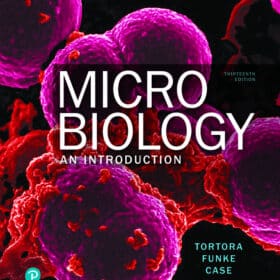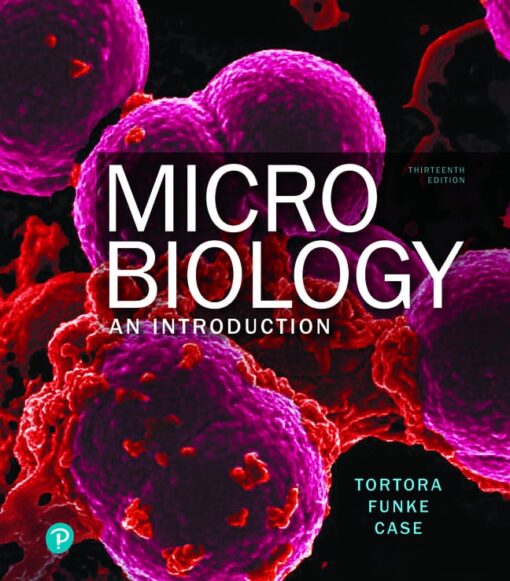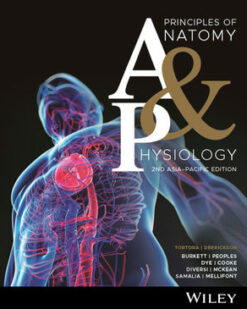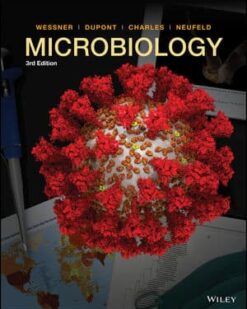Description
Table of Contents
Part One: Fundamentals of Microbiology
1. The Microbial World and You
2. Chemical Principles
3. Observing Microorganisms through a Microscope
4. Functional Anatomy of Prokaryotic and Eukaryotic Cells
5. Microbial Metabolism
6. Microbial Growth
7. The Control of Microbial Growth
8. Microbial Genetics
9. Biotechnology and DNA Technology
Part Two: A Survey of the Microbial World
10. Classification of Microorganisms
11. The Prokaryotes: Domains Bacteria and Archaea
12. The Eukaryotes: Fungi, Algae, Protozoa, and Helminths
13. Viruses, Viroids, and Prions
Part Three: Interaction between Microbe and Host
14. Principles of Disease and Epidemiology
15. Microbial Mechanisms of Pathogenicity
16. Innate Immunity: Nonspecific Defenses of the Host
17. Adaptive Immunity: Specific Defenses of the Host
18. Practical Applications of Immunology
19. Disorders Associated with the Immune System
20. Antimicrobial Drugs
Part Four Microorganisms and Human Disease
21. Microbial Diseases of the Skin and Eyes
22. Microbial Diseases of the Nervous System
23. Microbial Diseases of the Cardiovascular and Lymphatic Systems
24. Microbial Diseases of the Respiratory System
25. Microbial Diseases of the Digestive System
26. Microbial Disease of the Urinary and Reproductive Systems
Part Five: Environmental and Applied Microbiology
27. Environmental Microbiology
28. Applied and Industrial Microbiology






